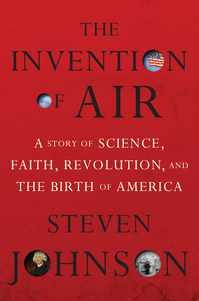I believe the following paragraph expresses the central message of Steven Johnson’s book The Invention of Air:
(p. 211) In the popular folklore of American History, there is a sense in which the founders’ various achievements in natural philosophy—Franklin’s electrical experiments, Jefferson’s botany—serve as a (p. 212) kind of sanctified extracurricular activity. They were statesmen and political visionaries who just happened to be hobbyists in science, albeit amazingly successful ones. Their great passions were liberty and freedom and democracy; the experiments were a side project. But the Priestley view suggests that the story has it backward. Yes, they were hobbyists and amateurs at natural philosophy, but so were all the great minds of Enlightenment-era science. What they shared was a fundamental belief that the world could change—that it could improve— if the light of reason was allowed to shine upon it. And that believe emanated from the great ascent of science over the past century, the upward trajectory that Priestley had s powerfully conveyed in his History and Present State of Electricity. The political possibilities for change were modeled after the change they had all experience through the advancements in natural philosophy. With Priestley, they grasped the political power of the air pump and the electrical machine.
Source:
Johnson, Steven. The Invention of Air: A Story of Science, Faith, Revolution, and the Birth of America. New York: Riverhead Books, 2008.
(Note: italics in original.)


